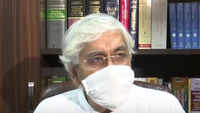Researchers uncover mechanism related to severe post-COVID-19 disease in children
A multidisciplinary team from Mass General Hospital for Children (MGHfC), Brigham and Women's Hospital and other institutions has identified the mechanism of how an extremely rare but serious post-COVID-19 complication develops in children and adolescents. Researchers determined that viral particles remaining in the gut long after initial COVID-19 infection can travel into the bloodstream, instigating the condition called Multisystem Inflammatory Syndrome in Children (MIS-C). The syndrome can occur several weeks after initial infection; symptoms include high fever, abdominal pain, vomiting, diarrhea, rash and extreme fatigue. The hyperinflammatory response and ‘cytokine storm’ seen in MIS-C can lead to extensive damage to the heart, liver and other organs. Eighty per cent of children hospitalized with MIS-C. MIS-C occurs in less than 1 per cent of children with confirmed SARS-CoV-2 infection. Current treatment strategies include an aggressive, long-term course of steroids and intravenous immunoglobulin. In the current study, the researchers measured high levels of SARS-CoV-2 virus in the stools and high levels of zonulin in the blood of children with MIS-C.
 01:12
01:12 02:14
02:14 01:22
01:22 01:54
01:54 01:59
01:59